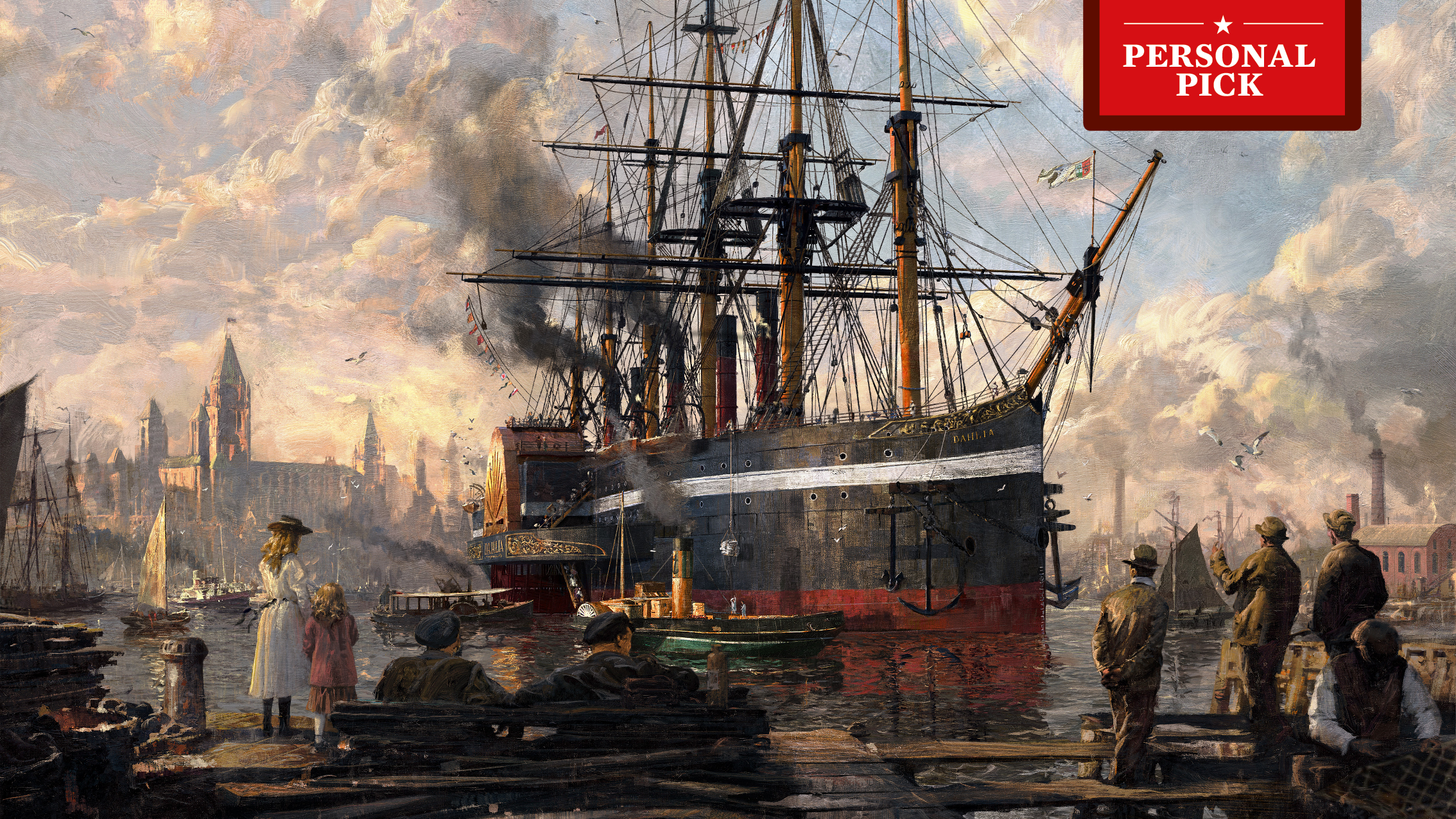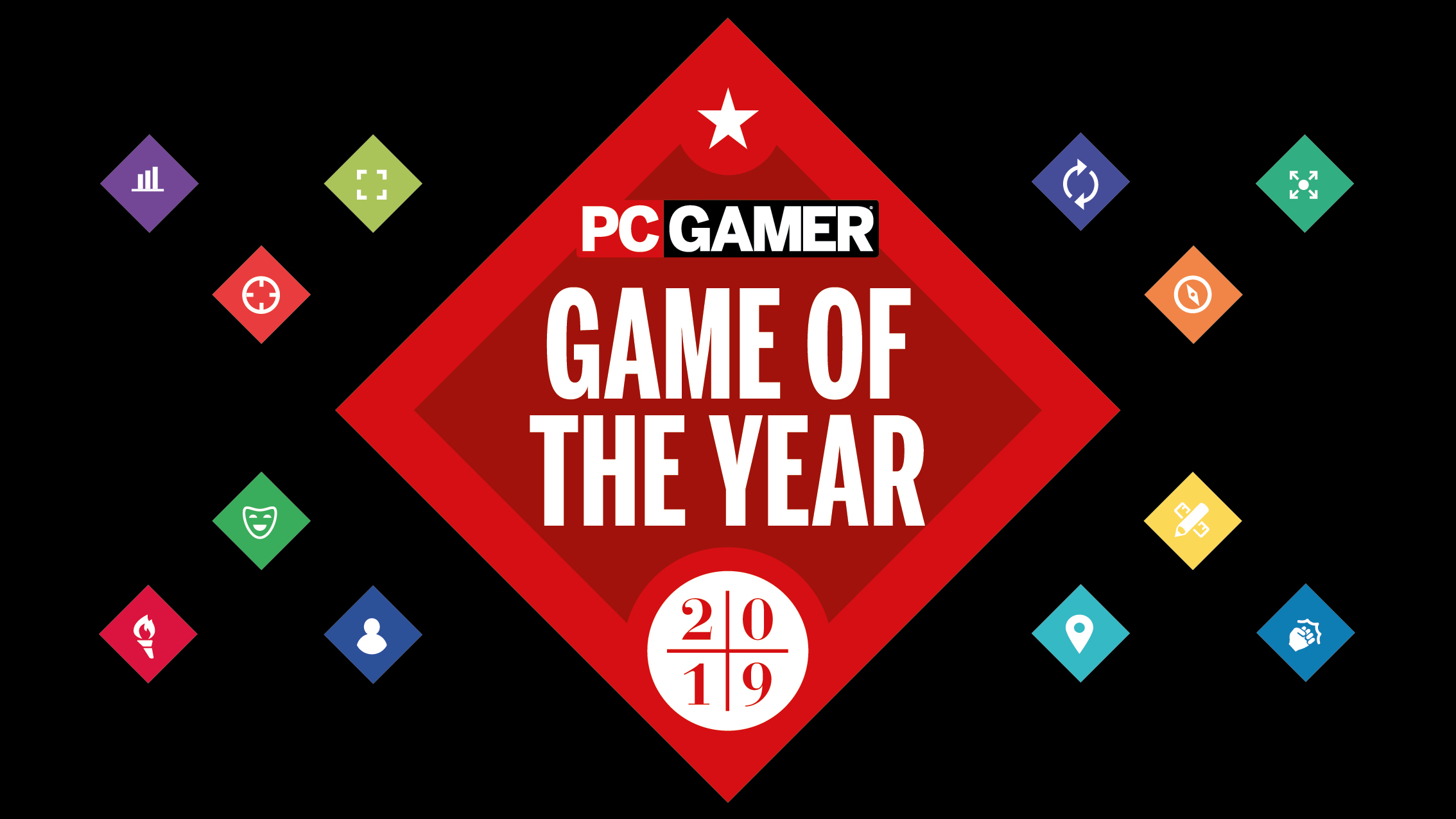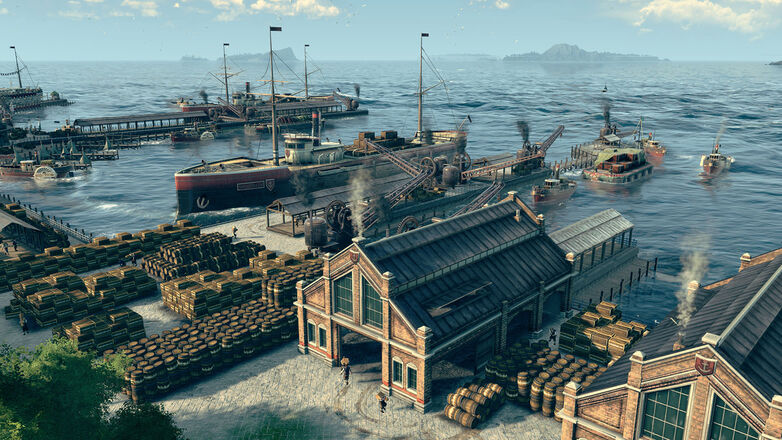Anno 1800's clean, easy to use interface masks a fiendishly compulsive city-builder
Celebrating another late night creating industry and paying the price.


Accompanying our team-selected Game of the Year Awards for 2019, individual members of the PC Gamer team will each discuss one of their favorite games from the last 12 months. We'll post a new personal pick, alongside our main awards, throughout the month of December.
I sit down on a Sunday afternoon—the time for playing sedate city-builders—with a large mug of tea at my side. It's time to spend a relaxing few hours building up my island.
It's a simple farming village right now—a quaint, attractive idyll that stands in spite of my character's jerk uncle and his neighbouring settlement. I don't entirely remember why I hate him so much—it's been a few Sundays since I last played and I've forgotten almost all of the story—but I do remember that the best way to get back at him will require goods and services. So long, peaceful way of life. It's time for an industrial revolution.
One of my favourite things about Anno 1800 is its user interface, which—no, don't leave—is possibly one of the most clean and easy to use that I've encountered in this sort of game. Rather than burying information in nested submenus, it attempts to show as much as possible on the game screen itself. When I go to place a sailmakers, for instance, it'll show all the sheep farms on the map—a reassuring green tick next to the ones that are close enough to deliver wool. But it'll also highlight the fire station to let me know if I'm in range of its protection; and, when I hover the building over a patch of trees, show how much it would reduce the efficiency of the nearby lumberyard.
As a fan of management sims, a good UI felt like an unnecessary luxury until I played with a great one. Anno 1800 has stripped bare just how much time I spend in other city-builders correcting avoidable errors—tearing up roads and buildings, redrawing the map to fit my latest expansion. Anno gives me the tools I need to plan ahead, ensuring that everything will run smoothly before I place it, and using the blueprint feature to leave space for buildings I plan to place once I've gathered the relevant resources.
Sure, it's not perfect. If anything it's a little too streamlined in places. The off-map menus—production, population, economy—could do with being a little more granular. And I'm yet to meet a trading game that had an intuitive trade menu. But in making it more easy for me to avoid having to rectify the past, the problems that I do face—and create for myself—are more forward facing.
It's as I place my first rendering works—the middle step in a production chain that will result in soap for my growing population of factory workers—that my economy starts to nosedive. I've expanded my industry too quickly, and I'm paying the price quite literally. The solution is more workers—they pay more tax than the farmers—but I can't upgrade farmhouses into worker housing unless all of the resident's needs are met, and, right now, they need schnapps.

By the time I've got the crisis under control, Sunday afternoon has turned into Sunday evening, and my tea has long gone cold. My bank balance is back in the black, but my housing project has resulted in mass unemployment. And so I'm back to building and expanding and meeting the demand of hundreds of workers. Maybe I should expand into beer production? I place a brewery. My economy doesn't like this one bit.
Keep up to date with the most important stories and the best deals, as picked by the PC Gamer team.
Anno 1800 creates a rhythm of growth. You expand your industry until your economy strains under its weight. And then you expand your housing to recover. Each step leads into the other, creating a satisfying core loop that balloons in complexity each time it comes full circle. Thanks to its attractive interface and compulsive rhythm, Anno 1800 is a game that demands you attention long past the point that concepts like 'tea' and 'Sunday' are forgotten.

Phil has been writing for PC Gamer for nearly a decade, starting out as a freelance writer covering everything from free games to MMOs. He eventually joined full-time as a news writer, before moving to the magazine to review immersive sims, RPGs and Hitman games. Now he leads PC Gamer's UK team, but still sometimes finds the time to write about his ongoing obsessions with Destiny 2, GTA Online and Apex Legends. When he's not levelling up battle passes, he's checking out the latest tactics game or dipping back into Guild Wars 2. He's largely responsible for the whole Tub Geralt thing, but still isn't sorry.

